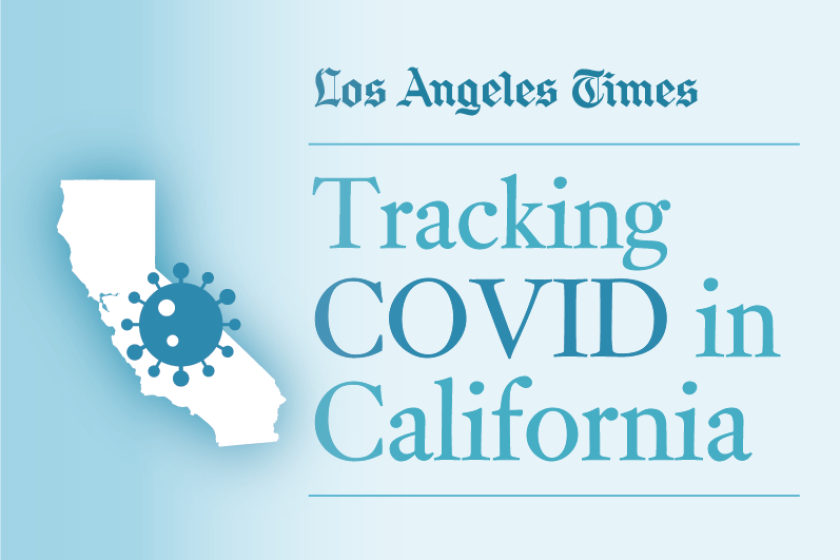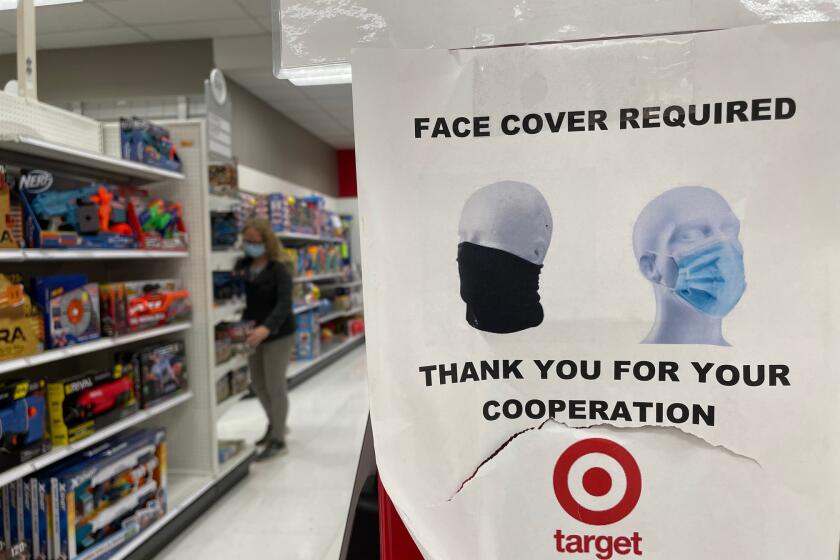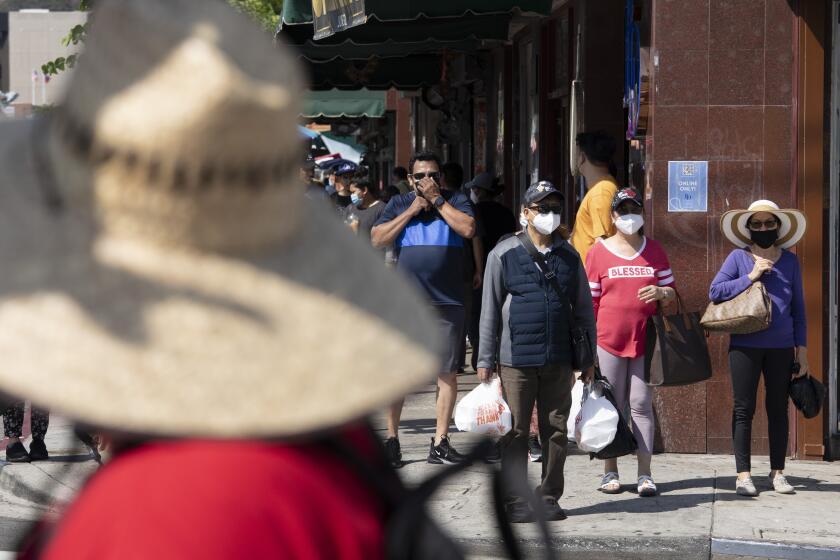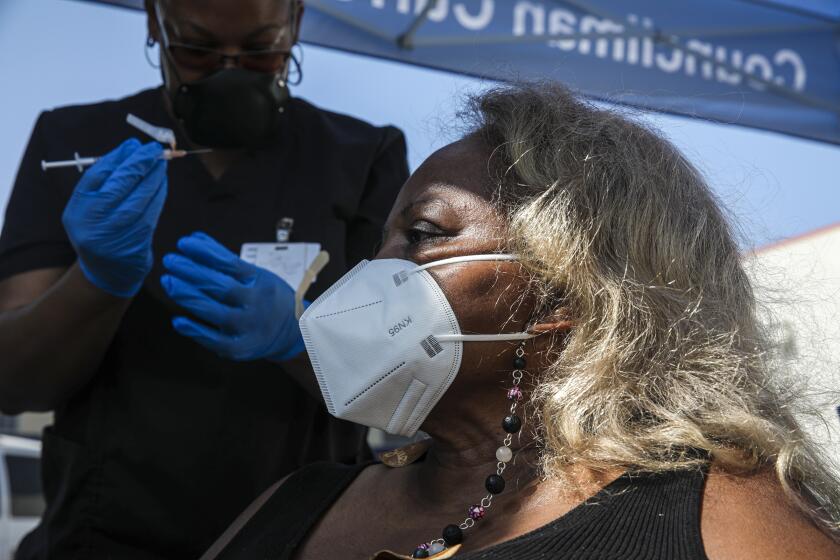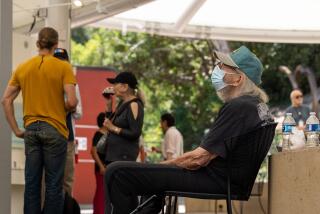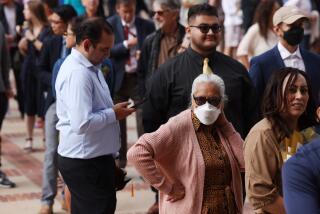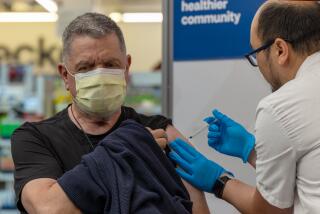L.A. County sees big surge in coronavirus: 2,551 new cases in one day
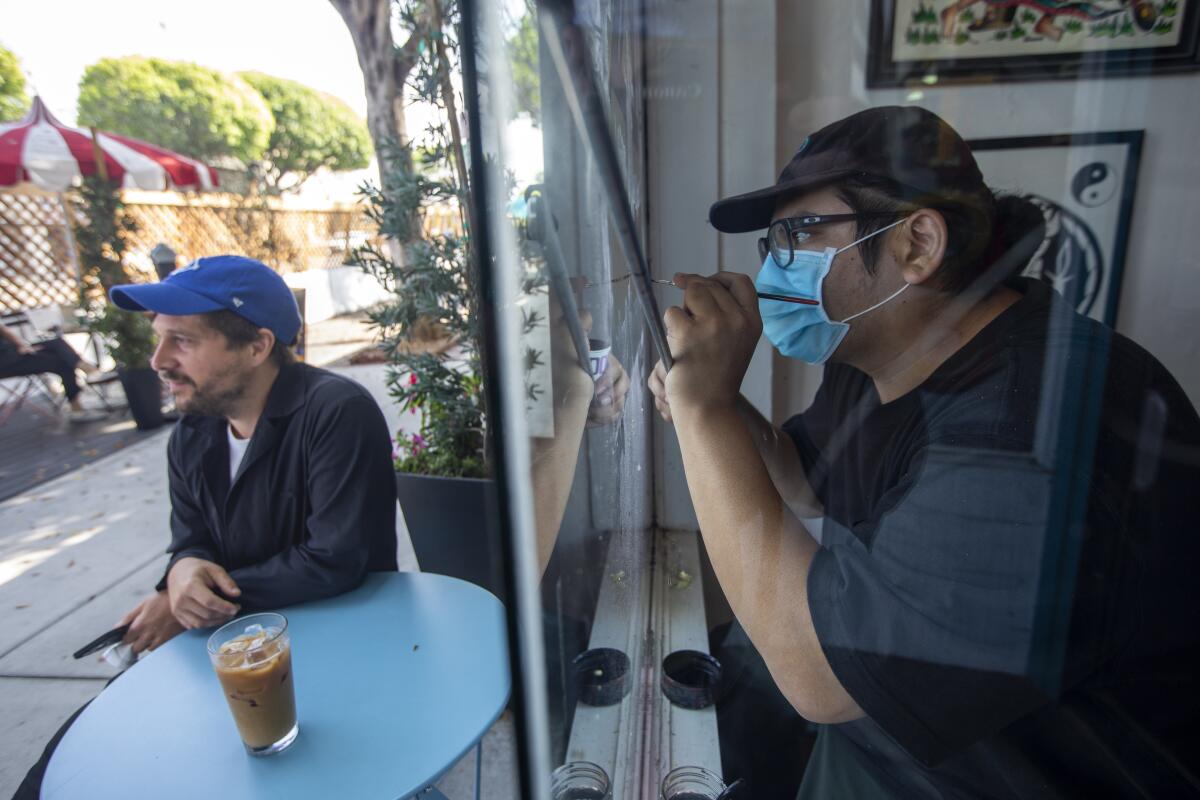
Los Angeles County reported its largest single-day total of new coronavirus cases in months as the region races to wrap its arms around what officials now say is a new surge of the virus.
Public health officials reported 2,551 new infections Wednesday — the highest figure since early March, when the county was shaking off the last vestiges of the fall-and-winter wave.
Wednesday’s report continues a troubling pattern of increased transmission that emerged after the state’s June 15 reopening and coincided with increased circulation of the hypercontagious Delta variant.
“Because of the more infectious Delta variant and the intermingling of unmasked individuals where vaccination status is unknown, unfortunately, we are seeing a surge in cases in L.A. County that looks somewhat similar to last summer,” Public Health Director Barbara Ferrer said. “An important difference this summer is that, with millions of people vaccinated, we are hopeful we will avoid similar increases in deaths.”
Officials have said many of the new infections being confirmed, both in L.A. County and statewide, are among the unvaccinated.
Over the week of July 7 to 14, the average case rate among unvaccinated Californians was 13 per 100,000, according to the state Department of Public Health. The comparable figure among those who had been vaccinated was 2 per 100,000.
But even with roughly 53% of L.A. County fully vaccinated, millions of residents remain vulnerable to the latest resurgence of COVID-19.
Officials have expressed growing alarm over the spread. The countywide test positivity rate now stands at 5.2%. A month ago, it was only 0.7%.
The number of COVID-19 hospitalizations has also risen rapidly. On Tuesday, 645 coronavirus-positive patients were receiving that level of care countywide — nearly triple the number seen a month ago.
Daily COVID-19 death totals remain relatively low — at an average of about 4 in L.A. County and 23 statewide, according to data compiled by The Times.
Despite the alarming increases, L.A. County has yet to come close to the harrowing heights seen during the winter surge, when an average of about 15,000 new cases were being reported every day and more than 8,000 COVID-19 patients were hospitalized.
But given the presence of the Delta variant, which is believed to be twice as transmissible as the conventional coronavirus strains, officials have already taken steps to try to rein in transmission — reinstituting a requirement for all residents to wear masks while in indoor public settings, regardless of their vaccination status.
“By adding a mask requirement for everyone indoors, the risk for transmission of the virus will be reduced, and with increases in the number of people getting vaccinated, we should be able to get back to slowing the spread,” Ferrer said in a statement Wednesday.
Officials maintain that those who have been vaccinated have strong protection against the coronavirus, including the Delta variant.
One-third of California counties are now urging even fully vaccinated people to wear masks indoors as coronavirus cases continue to rise.
L.A. County is far from the only corner of California that is contending with COVID-19’s latest punch.
Over the past week, the state has reported an average of nearly 5,000 new coronavirus cases a day, more than quadruple the number from a month ago, according to data compiled by The Times.
In late June, the state was recording about 6,000 new cases a week, according to a Times analysis. At the peak of the pandemic, the state was recording more than 300,000 new coronavirus cases over a seven-day period.
In light of the increases, one-third of California counties are now urging even fully vaccinated people to wear masks indoors. But L.A. County and the cities of Long Beach and Pasadena — which have their own independent health departments — are the only areas that have said they will mandate it.
Just this week, Santa Barbara, Monterey, Napa, San Benito, Santa Cruz, Ventura, Lake and San Joaquin counties joined the list of those asking even fully vaccinated individuals to wear face coverings as a precaution while inside places including grocery stores, movie theaters and retail outlets.
Statewide, the number of coronavirus-positive patients in the hospital more than doubled in the last month, and the rate has climbed further in the last two weeks.
Officials in most of the Bay Area, as well as Sacramento, Yolo and Fresno counties, also now recommend that people wear masks indoors.
Officials hope that masking up in those areas will slow the spread — but it will take weeks to know for sure. Should those measures prove insufficient, it’s possible more restrictions could become necessary.
At this point, the California Department of Public Health still advises that fully vaccinated residents are allowed to go without face coverings nearly everywhere, though unvaccinated people must still mask up in public indoor spaces.
While reports of fully vaccinated people occasionally getting the coronavirus may sound alarming, the shots dramatically reduce severe disease and death.
Even without action from the state, about 60% of Californians now live in a county that either recommends or requires indoor masking for everyone.
Gov. Gavin Newsom has been asked several times this week about the possibility of issuing new state masking guidance or mandates and has consistently responded that he doesn’t believe that step will be necessary — provided sufficient numbers of Californians get their shots.
“The answer to the Delta variant is rather simple: Get vaccinated. We don’t have to have masking if we all got vaccinated,” he told reporters Tuesday.
Times staff writer Rong-Gong Lin II contributed to this report.
More to Read
Sign up for Essential California
The most important California stories and recommendations in your inbox every morning.
You may occasionally receive promotional content from the Los Angeles Times.
